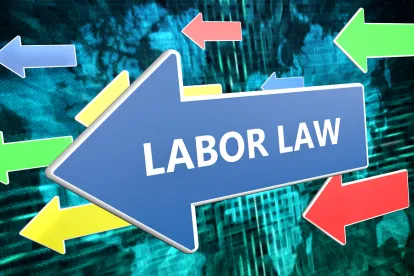After Jerry Brown’s second set of 8 years in office (1975-83 and 2011-19), employers now look to Governor-Elect Gavin Newsom for what’s next for employers in the Golden State. (Although Jerry Brown wasn’t a particularly good friend of employers, he often was the only friend they had in Sacramento, vetoing some of the more radical anti-employer measures that the California legislature routinely passed and sent to him for signature.) A former mayor of San Francisco and state lieutenant governor, Newsom is unlikely to change the course of California’s decidedly pro-employee, pro-union laws and regulations anytime soon. That said, California employers should keep a watchful eye on the following moving targets:
The #MeToo Movement and Arbitration
Newsom is an ardent supporter of the #MeToo movement and vows to “strengthen workplace protections such as creating hotlines for victims, transparent, independent, swift investigations, and real consequences for abusers and harassers.” Leading companies like Google, Microsoft, and Uber have recently decided to end mandatory arbitration of employee sexual harassment claims, leaving their employees free to sue them in state or federal court. One can wonder whether this is the sort of transparency that Newsom would embrace as part of his support of the #MeToo movement.
Gov. Brown repeatedly vetoed recently passed bills that prohibited mandatory arbitration in employment agreements on the perfectly reasonable ground that such legislation unquestionably conflicts with and is preempted by federal law. (Gov. Brown’s veto message.) However, it’s anyone’s guess whether Newsom will part ways with Brown and sign such legislation the next time the legislature passes it (i.e., presumably next term).
“The Future of Work”
Newsom dedicates a portion of his website statements about the economy to what he calls “the future of work.”Although amorphous, many of his ideas on “the future of work” would significantly impact employers. For example, Newsom highlights wage insurance to those who lose their jobs to automation, portable benefits to transfer between jobs in the gig economy, and an expansion of the earned income tax credit as areas that need to be addressed.
Newsom, whose campaign for governor was largely funded by contributions from labor unions, has, not surprisingly, expressed his commitment to those same unions – especially in the wake of the Supreme Court’s recent opinion inJanus v. AFSCME, which eliminated mandatory union dues for government employees. California already has taken numerous steps to limit the rights of government employees who decline to join or wish to leave a union. Newsom presumably will be very receptive to even more union-friendly legislation in California.
With an expansive pro-employee, pro-union majority (which may in fact turn out to be a “supermajority“) in both houses of the California legislature, Gov. Newsom is unlikely to provide much relief to employers (even if he wanted to) and in fact he may make things even more challenging once he starts signing legislation that Gov. Brown may have vetoed.
Law clerk, Cole Lewis, assisted with this piece.



 />i
/>i
